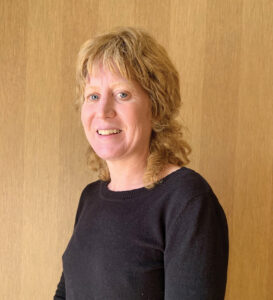There is truly power in numbers, especially when it comes to unions. Workers win bigger gains at the bargaining table and in the political arena when we have higher density. Density means representing a greater share of the workforce — whether within individual companies, sectors, geographic regions, or nationally. A local representing all union-eligible workers at an employer is better positioned to win a strong contract than a local that represents a small minority of the employer’s total workforce. When our union represents the majority of utility employees in a particular state, we have greater power to build alliances and communicate our concerns to consumers, public utility councils, elected leaders and decision makers.
UWUA National leadership is committed to helping locals organize and build density. We do this at a seemingly contradictory moment in history: union favorability among the public is at a 50-year high with nearly 70% supporting labor unions. Recent high-profile union organizing and strike activity show that workers want and value unions. At the same time, union membership has been on a long-term decline, including in the utility industry and the UWUA itself.
The United States Department of Labor reported the country’s overall unionization rate at 11.6% in 2021 (public and private sectors combined) — well under half of what it was roughly 40 years ago — and utility industry density at 19.7%, down from 25% in 2011. Our union is not insulated from these larger trends. We are working hard to build our membership, as there’s never been a better or more urgent time for workers to organize to ensure workplace protections.
These national declines can be explained by the utility industry’s aging workforce, the closure of nuclear and coal-powered plants, changing technologies and more recent efforts to ban natural gas utilities in commercial and residential construction. Recognizing these trends, last year the UWUA announced a partnership between the National and local unions to jumpstart an organizing program.
I’m proud to introduce our union’s new organizing director, Deirdre Brill. She’ll work with National organizers Bob Houser and Valerie King and National representatives to focus the UWUA’s organizing efforts more strategically and bring in more members faster — at existing workplaces and unrepresented companies. She brings a wealth of organizing experience that will help our locals build their ranks both in terms of numbers and member engagement — both critical elements for winning at the bargaining table and in the political arena.

For 12 years, Brill directed a team of full-time organizers at the Professional Staff Congress (PSC), a local of the American Federation of Teachers, which represents 28,000 employees at the City University of New York. Under her leadership, PSC added thousands of new members, and re-carded 10,000 members in advance of the 2018 Supreme Court ruling in Janus vs. AFSCME, which took direct aim at public sector organizing. While at PSC, she also established a program that trained hundreds of member organizers – another key component to union growth.
Brill caught the organizing bug while earning her PhD in history at the University of Pennsylvania, where she helped lead an effort to organize 1,000 of her fellow grad students. She recognizes that she has a lot to learn about water, gas and electric, but is ready to get started.
“The particular issues may vary within a region or sector, but the process is the same no matter who or where you are organizing: listen, build trust, and get workers to take ownership,” she says.
She’s already supporting UWUA organizing efforts at Delta Gas in both the northern and southern tiers of Kentucky, and other campaigns are quickly taking shape. She’ll also be working with Jim Harrison to ensure that the UWUA avails itself to all opportunities in emerging renewable fields.
Over the past hundred years, a union job has been the surest path to the American Dream. That remains truer than ever today as union employment continues to be the best way to build the middle and working classes and strong communities. Unions also provide a guaranteed way to close racial, gender and socioeconomic wage gaps and ensure fair wages and benefits for all.
Increasing density — in our shops, in our sectors, and in our regions — is the most important thing our union can do to help create a more equitable economy and build middle class wealth. I’m proud to be part of a union that is devoting the resources needed to spread that dream. We are committed to this mission and with Deidre Brill and our other talented organizers leading the way, we will work together toward seeing our ranks grow and thrive.

